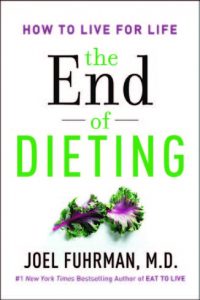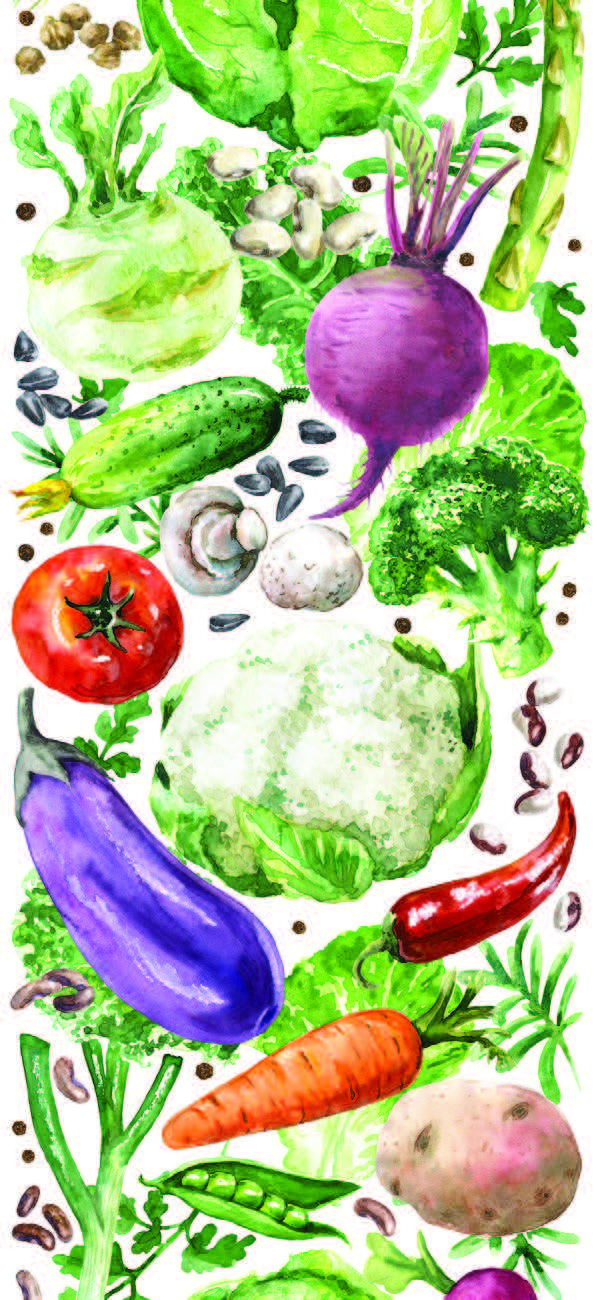Almost any diet will be effective for weight loss in the short-term. As long as there is a calorie deficit, there will be some weight loss, but that doesn’t make the diet a healthful one.
Research suggests macronutrient-juggling diets (low-fat, lowcarb) have similar (and modest) effects on weight loss, that there is no magic proportion of fat, carbohydrate, and protein that makes the weight melt off. Keeping the weight off and achieving good health requires making a positive dietary change and sticking with it for the rest of your life – otherwise, the weight you lose will always come back. Short term weight loss followed by weight regain, is not just worthless, it is harmful. That means dieting will never work, and any worthwhile diet-change must be something you stay with forever. The preponderance of evidence indicates that diets high in vegetables and beans are the healthiest and linked to longest lifespans. Those foods are the secret to successful long-term weight loss too.
We need to focus on foods that promote weight loss – but they must also be good for long-term health and longevity. This is where the high-protein diets fall apart; just too dangerous long-term. The extremely low-fat, high-rice and potato diets are also problematic. Research suggests that reducing insulin and IGF-1 signaling by reducing both animal protein and high-glycemic carbohydrate is an effective strategy for avoiding diabetes, cancer, and heart disease, and living a long, high-quality life.
There are plenty of studies that have demonstrated weight loss over a 6 month to one-year period on a low-carbohydrate, high-protein diet. This isn’t surprising: high-protein foods usually have a high satiety value and produce a small increase in the short-term calorie burn after a meal. Plus these diets do cut out weight gain promoting high-glycemic carbohydrates. In these short-term studies, there are often improvements in cholesterol levels and blood pressure. However, long-term observational studies point to serious harm of diets rich in animal products, demonstrating increased medical problems with aging that cut short lifespan. Every large epidemiological study evaluating this issue demonstrate diets high in animal protein increase death from both cardiovascular causes and cancer.
Vegetarian or vegan diets that pay no attention to the glycemic load of high carbohydrate foods may also be unfavorable from a longevity standpoint. High-protein diets amp up IGF-1 signaling, which accelerates aging and increases cancer risk, and a diet with too much high-glycemic carbohydrate does the same via increased insulin signaling. Weight loss has been reported in many trials on vegetarian and vegan diets. The BROAD Study, published in 2017 reported weight loss in overweight or obese participants assigned to a low-fat, plant-based diet or a control group. But again, there are problems when such diets are evaluated long-term. The authors ignored the copious amount of research on cardiovascular and weight loss benefits of nuts, and advised participants to avoid high-fat plant foods, like nuts, tahini, and avocados; foods definitively linked to enhanced lifespan.
The Adventist Health Study 2 documented serious harm from those following (lowfat) plant-based diets—those not eating sufficient nuts and seeds. These fat containing foods facilitate the absorption of anti-cancer phytochemicals, essential for maximizing protection against cancer. Instead, participants were encouraged to eat potatoes, sweet potatoes, whole grains, bread, cereals and pasta as major calorie sources. Bread, cereals, potatoes, and pasta are high-glycemic load, without a significant load of antioxidants and phytochemicals that offer lifespan benefits. And the omission of the fat from nuts and seeds further diminishes the absorption of the lipophilic phytonutrients that enhance lifespan. A high-glycemic load diet is linked to an increased risk of heart disease and cancer, also because of elevated insulin levels. Additionally, dry-cooked starchy foods (like bread and cereal) contain advanced glycation end products (AGEs), harmful substances that cause oxidative stress and inflammation, damage body proteins and fats, and contribute to heart disease and type 2 diabetes.
Food (serving size) Glycemic Load
Potato (1 medium baked, w/o skin) 29
White rice (1 cup cooked) 29
White pasta (1 cup cooked) 21
Cereal (corn flakes, 1 cup dry) 20
Rolled oats (1 cup cooked) 13
Lentils (1 cup cooked) 9
Black beans (1 cup cooked) 6
Orange (1 medium) 4
Cashews (1 ounce) 2
Strawberries (1 cup) 1
In contrast, beans and nuts and seeds are low-glycemic, high-fiber foods that promote weight loss and have links to lower risk of chronic diseases and a longer life. When directly compared, beans have been shown to be superior to whole grains for weight loss, HbA1c, and cardiovascular risk factors in patients with type 2 diabetes.
The Nutritarian diet is more than just restricting one or two classes of problematic foods. It’s not just a step up from the Standard American Diet. It is a complete dietary overhaul toward the foods that promote weight loss and are linked most consistently to a lower risk of diabetes, cardiovascular disease, and cancer. Greens, beans, onions, mushrooms, berries (and pomegranate), seeds (and nuts) are encouraged due to their documented benefits to prevent cancer. The published data on the Nutritarian diet suggests that weight loss is substantial and – importantly – maintained over a long period of time. A recently published study showed that 75 obese patients lost an average of over 50 pounds after starting a Nutritarian diet and kept it off for 3 years. After one year, in those who started out with hypertension, there was a 26 mm Hg average reduction in systolic blood pressure. In respondents who were not taking cholesterol-lowering medication, there was an average 42 mg/ dl decrease in LDL cholesterol an average decrease in triglycerides of 79.5 mg/dl.

 Joel Fuhrman, MD specializes in preventing and reversing diseases through nutritional and natural methods. Dr. Fuhrman is the author of several books, including the New York Times bestsellers Eat to Live, Eat to Live Cookbook, Super Immunity, The End of Diabetes, and The End of Heart Disease. His book, The End of Dieting outlines the eating style designed to produce sustainable and health-promoting weight loss, and explains in detail the dangers of many popular weight loss diet plans. It also helps facilitate change effectively addressing food addiction and emotional overeating. At Dr. Fuhrman’s Eat To Live Retreat in north San Diego County, overweight and ill individuals are directly under his care for 4-12 weeks to facilitate a complete health recovery. Learn more at drfuhrman.com/ETLretreat. You can reserve by either calling our office at (949) 432-6295 or by email at info@ETLretreat.com
Joel Fuhrman, MD specializes in preventing and reversing diseases through nutritional and natural methods. Dr. Fuhrman is the author of several books, including the New York Times bestsellers Eat to Live, Eat to Live Cookbook, Super Immunity, The End of Diabetes, and The End of Heart Disease. His book, The End of Dieting outlines the eating style designed to produce sustainable and health-promoting weight loss, and explains in detail the dangers of many popular weight loss diet plans. It also helps facilitate change effectively addressing food addiction and emotional overeating. At Dr. Fuhrman’s Eat To Live Retreat in north San Diego County, overweight and ill individuals are directly under his care for 4-12 weeks to facilitate a complete health recovery. Learn more at drfuhrman.com/ETLretreat. You can reserve by either calling our office at (949) 432-6295 or by email at info@ETLretreat.com




















